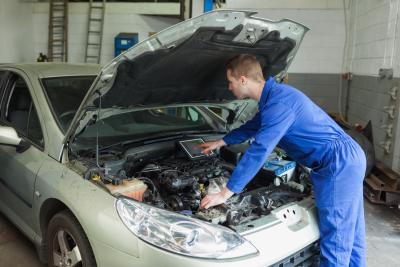A blown engine can be costly. The entire engine may have to be replaced under most circumstances. In the case of an older vehicle this cost can often exceed the value of the vehicle.

The definition of a blown engine is one that has been so severely damaged that it needs to be replaced or completely rebuilt. The damage is so extensive that it affects the majority of the engine parts. The damage can include a cracked block, destroyed pistons, damaged intake and and exhaust valves. Connecting rods may be broken and the cylinders scratched.

Blown engines can be caused by numerous factors. Running an engine out of oil will cause it to blow. Running an engine at high speeds and and excessive revolutions per minute (RPMs) for an extended period can also cause engine failure. A blown engine is often the result of overheating. A serious coolant leak can cause the engine to explode.

The best way to prevent a blown engine is to properly maintain your vehicle. Never operate the car outside its recommended ranges. Avoid high RPM revving and extended periods of high speed driving. After market turbo charging kits can lead to a blown engine if used incorrectly.

Early symptoms that can lead to a blown engine are low oil pressure, uncommon engine knocks or noises. An engine that overheats regularly or is hard to start can also signal a blown engine. If a car has any of these symptoms it is best to get it checked by a mechanic.
